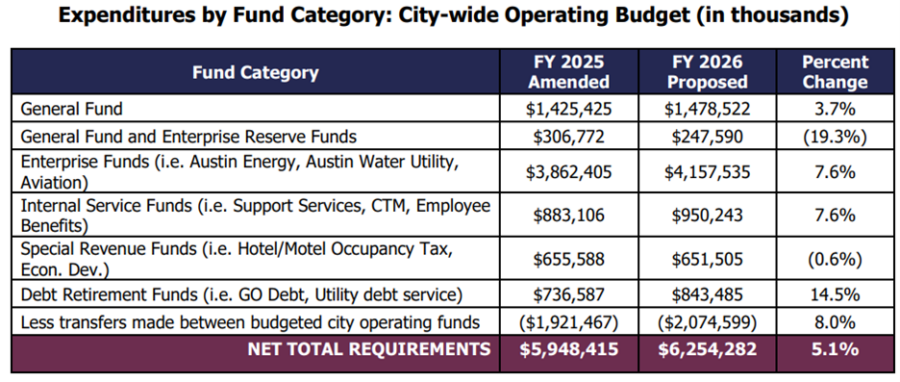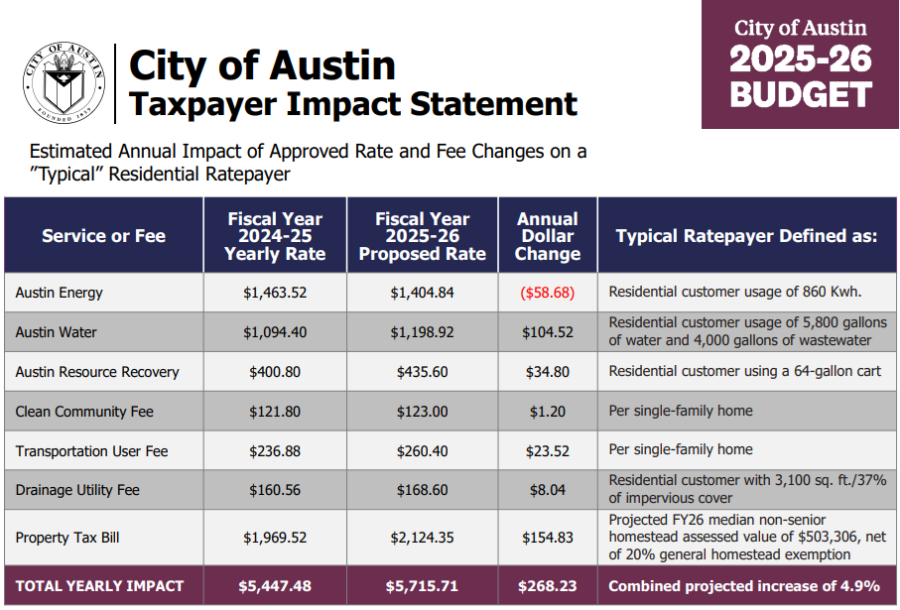The city of Austin spends profusely. Its property tax is growing wildly. It’s drowning in debt. And to make matters worse, the future doesn’t look so bright for those footing the bill.
Earlier this month, the city introduced its proposed budget for the upcoming 2025-26 fiscal year, which totals a massive $6.3 billion or $6,294 per resident. The city’s multi-billion budget represents a 5% year-over-year increase, with the largest category experiencing growth being its debt service fund (14.5%).

Unsurprisingly, Austin’s proposed budget has come under criticism for seeking to fund a host of questionable projects and programs, like $6.3 million for the Office of Equity and Inclusion, $51.5 million for homeless strategies, $5.8 million for the urban forest replenishment fund, $4.3 million for community tree preservation, $2.3 million for climate action and resilience, and $2.5 million for taxpayer-funded lobbyists. And so, so much more.
Oddly, the city’s spendthriftiness didn’t seem to extend to public safety though, as “[t]he largest single reduction in spending under the plan involves restructuring police and fire staffing models to cut down on overtime hours.” This curious proposal comes in spite of the fact that the Austin police department’s “average response times consistently increased over five years, going from 29 minutes in 2019 to nearly 47 minutes last year.”
To pay for the city’s multi-billion budget proposal, taxpayers and ratepayers will shoulder a hefty increase in new taxes and fees. According to its taxpayer impact statement, the average Austinite will pay a total of $5,715.71 for city services, which represents a 4.9% increase over the previous year. The bulk of that increase takes the form of a property tax hike (+$154.83) and higher water/wastewater bills (+$104.52).

In addition, the city is also contemplating a tax ratification election (TRE), which may see taxes climb even higher. The likelihood of a TRE is unclear, but the mayor recently said that the city should “keep (their) options open.”
Austin city officials claim that such an election might be necessary because of the potential for huge deficits and unmet needs. But, if anything, the proposed budget makes it clear that Austin has too much money and the real solution to close any looming budget gap is to cut spending.
It’s time for Austin’s city council to get serious about the affordability crisis that it is primarily responsible for. Cut spending, stop borrowing, and lower taxes. That should be the pathway forward.











